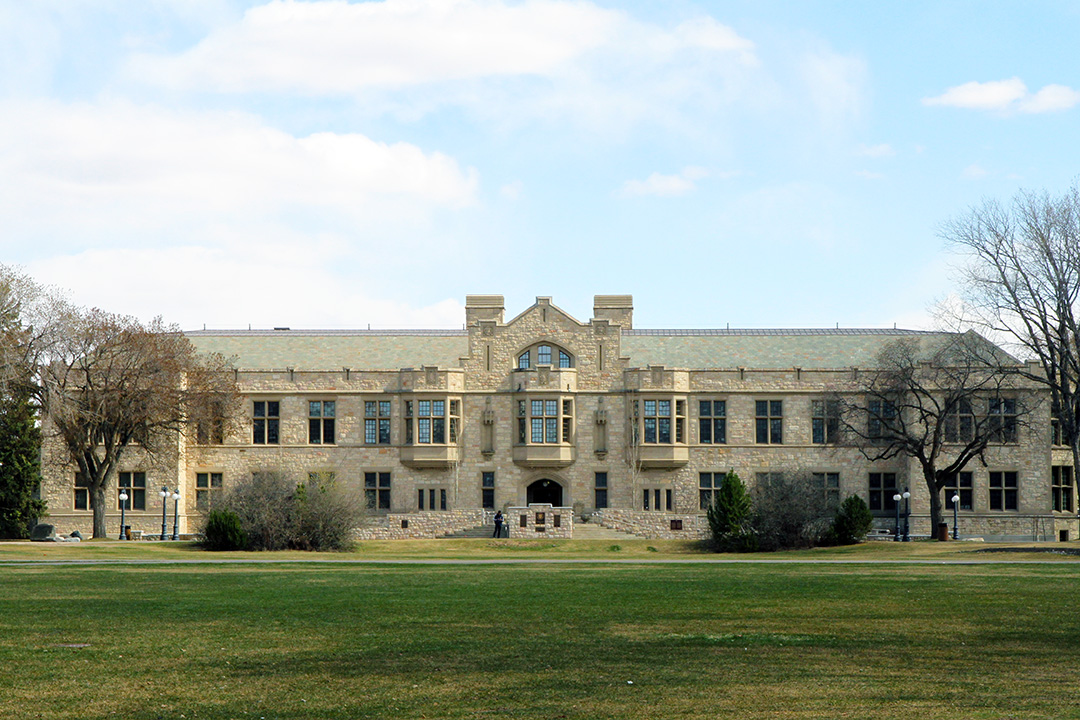
President’s statement and actions on racism
Racism and discrimination are experienced by members of the University of Saskatchewan community. Although we proclaim that we will not tolerate discriminatory or racist behavior in our teaching, learning and research spaces, those harmful behaviors nonetheless operate at our university in many forms, as they do in organizations and institutions across this country and around the world.
As Black Lives Matter protests locally and globally have shown, words alone are an insufficient response. Words can be a public acknowledgement of the need for action and a commitment to action. But racism and discrimination require all of us to act, all of the time, a point I made in my June 1 statement and which bears repeating.
Acting does not necessarily mean just "calling out" unacceptable behaviour and attitudes, although that must continue where it’s happening, and begin where it’s not. Acting calls for the dismantling of institutional structures, policies and processes that contribute to inequalities faced by marginalized groups. Acting also means being well informed by history and current realities, and asking questions that open new ways of thinking through research and learning. It means challenging the status quo and changing our opinions. And it means leading and contributing to the discussions that universities are ideally suited to provide.
Let us not forget that five years ago we committed as a university community to the values of: collegiality; fairness and equitable treatment; inclusiveness; integrity, honesty, and ethical behaviour; and respect. A key part of our Mission, Vision and Values, these values were adopted by our three governing bodies. To be members of the USask community, these values need to be lived at USask by all of us all of the time.
As we continue with our goals to be the best place we can be with and for Indigenous students and their communities, to provide ongoing support to the 2SLGBTQ+ community on campus, and to be a welcoming place for all people of colour and of all religious faiths, we also know we can do more. Here are some of the steps we are initially taking, with more to follow:
- Guiding our continuing efforts to dismantle racism and discrimination will be our Equity Diversity and Inclusion (EDI) Strategy and Action Plan, which faculty, staff and students have been working to develop over the past year. This plan, which will come before our three governing bodies this fall, is an important step toward enacting the principles of equity, diversity, and inclusion as drivers of excellence for a just society.
- A new Indigenous Strategy with Calls to Action, to be gifted to us by Indigenous leaders and communities, comes to June’s Council and to the next two governing bodies in the summer and fall, after which we will all be accountable to its direction. This strategy, intended to intersect with the EDI Strategy and Action Plan and the University’s 2025 Plan, calls for “meaningful and respectful action to advance Indigenization and support transformative decolonization leading to reconciliation.”
- To ensure we have the right structures and processes in place for members of the USask community who experience racism and discrimination, we will be expanding our Discrimination and Harassment Prevention Services to ensure more proactive educational and accessible resources.
- Unconscious bias training will be held for all senior administrators beginning this summer and will become a foundational element of Greystone Leadership programming, all search committee work, and a requirement for all new hires — training that will permeate the university workforce.
- To help ensure a USask culture that is inclusive for all students, the University of Saskatchewan Students Union and the President’s Office will develop an Anti-Racism Charter to promote anti-racism programming funded by my office. I intend that this charter will have the same institution-wide influence as the Sustainability Charter I signed with the USSU at the beginning of my presidency.
- As part of our mission to develop global citizens, we will enter into a strategic alliance with the Saskatchewan Human Rights Commission to activate at USask the citizenship principles of being enlightened, ethical, empowered, engaged and empathetic.
- We will continue to work with and contribute to the Saskatoon Anti-Racism Network, and senior leadership will benefit from actively participating in Anti-Racism training this summer.
It is our collective responsibility to build and shape the community and the world we want every day. Universities such as ours, benefitting from the diversity of perspectives of thousands of students, faculty, staff and alumni, can positively influence behaviour and understanding in ways no other kinds of institutions can. If we are deliberate and courageous, we can make these changes together through dialogue, education and action.
Peter Stoicheff
President and Vice-chancellor
University of Saskatchewan
